
Findings for
Germany
Cite as:
Perko T. (2025): RadoNorm European Radon Behavioural Atlas: Germany, H2020 project RadoNorm, No 900009 https://www.radonorm.eu/
Methodology
The study employed Computer-Assisted Web Interviewing (CAWI) to survey a representative sample of the population residing in the German states of Baden-Württemberg, Bavaria, and Saxony. Prior to the main data collection, the questionnaire was pilot tested in the Walloon region of Belgium (N = 300), followed by a soft launch in the German regions (N = 50). Respondents were randomly selected from the online panel of GIM Gesellschaft für Innovative Marktforschung mbH, a German market research company. The final sample comprised 1,435 individuals aged 18 and older, with quotas applied to ensure representativeness by sex, age (sex-age groups), and federal state. Additional observation quotas included educational attainment and degree of urbanisation. The respondents' postal numbers were linked to the level of radon risk in the region after the data collection. The overall response rate was 36%. Interviews were conducted in German between May 4 and May 15, 2023, with an average duration of 22.07 minutes. The fieldwork was sponsored by the Federal Office for Radiation Protection (BfS), and data analysis was conducted by SCK CEN (Belgium). Data are available at: [DOI:10.20348/STOREDB/1179/1302]
Download the questionnaire PDF here.
Download the technical report PDF here.
Results
Radon awareness and protection behaviour
Are people in Germany aware of radon and do they test and mitigate?
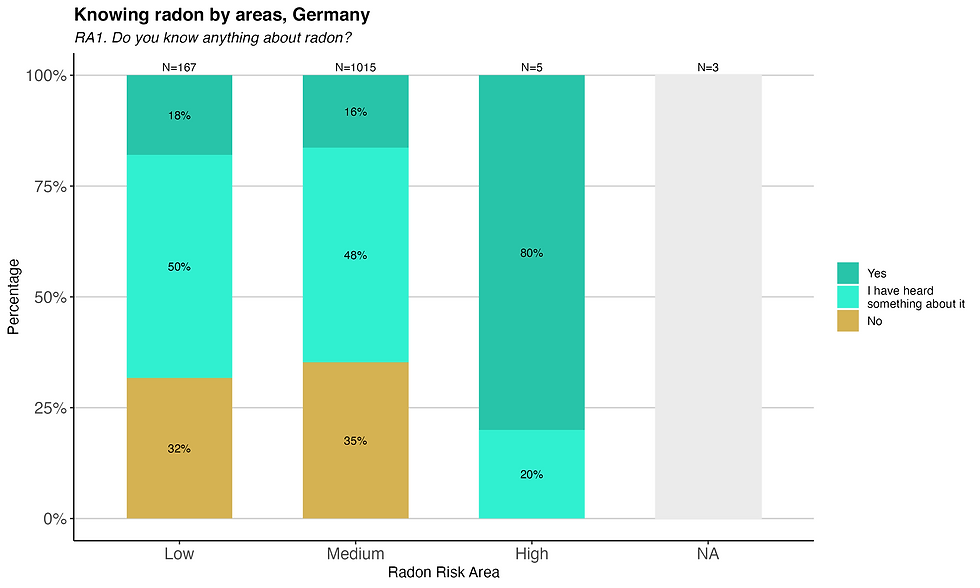

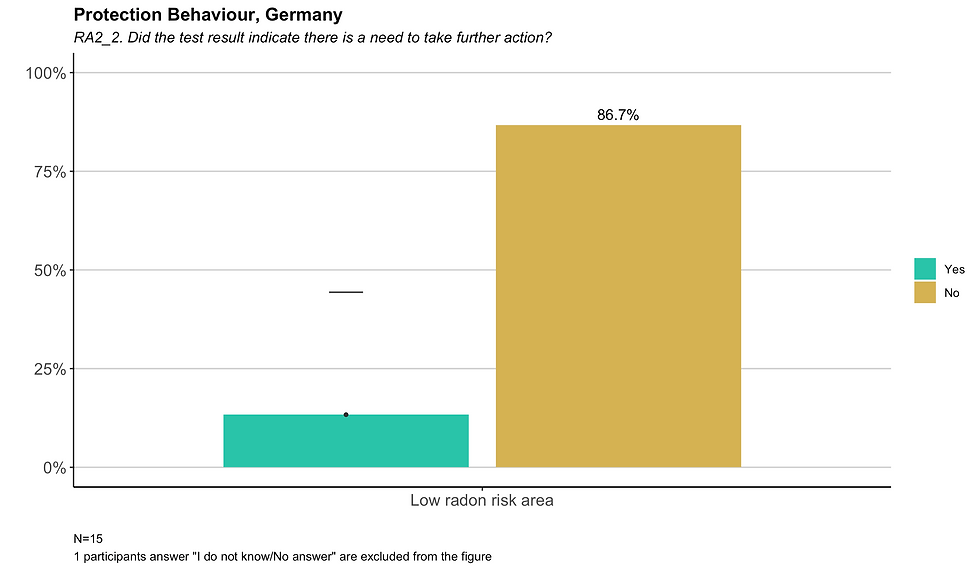

Intention to protect from radon
What is the public willingness to adopt radon protection measures in Germany?
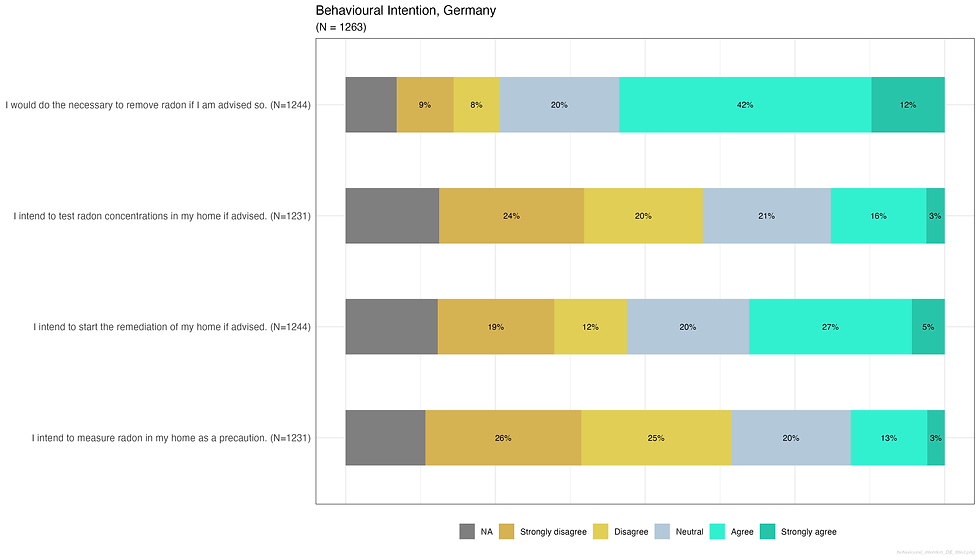
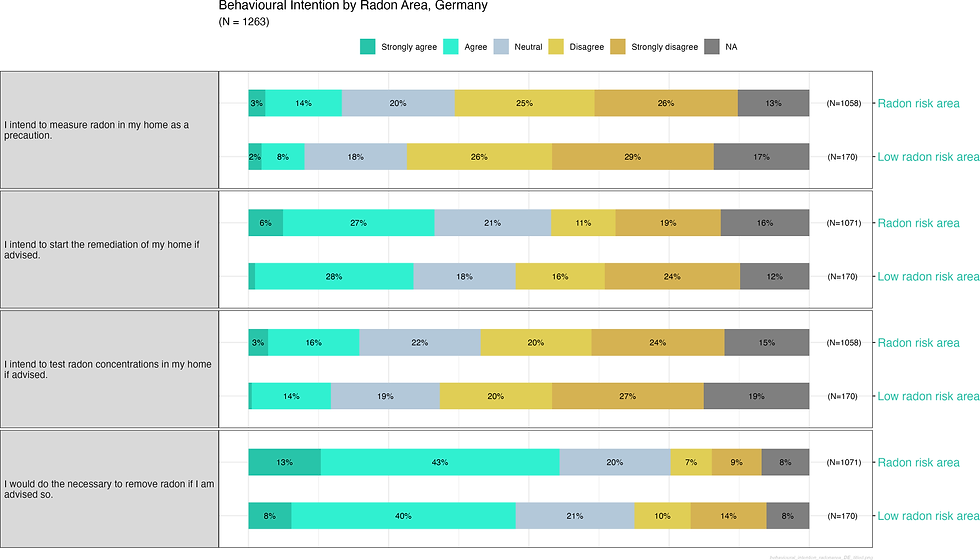
Radon Knowledge
How much people in Germany know about radon?
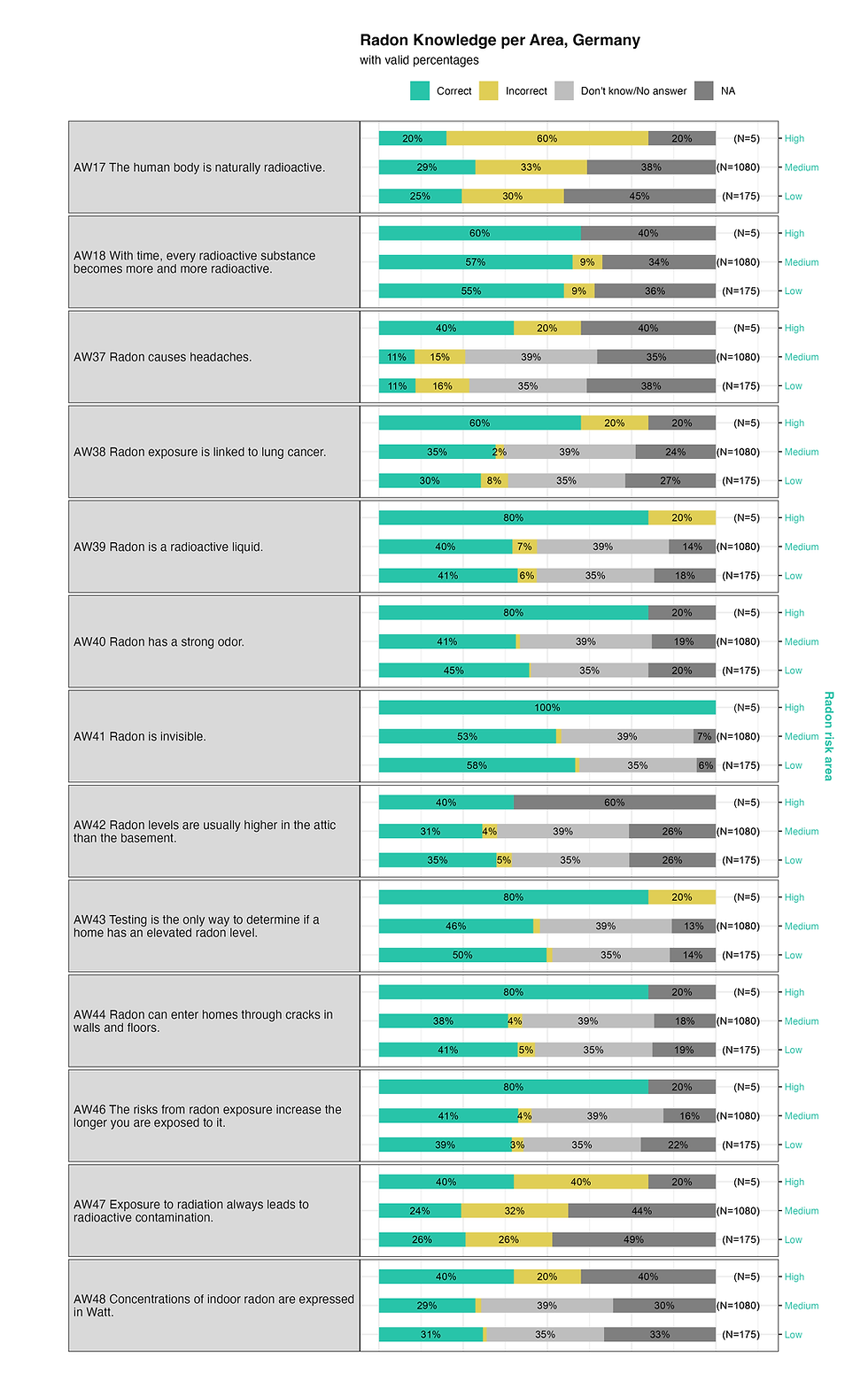

Risk perception
How do people in Germany perceive radiological, radon and other risks?

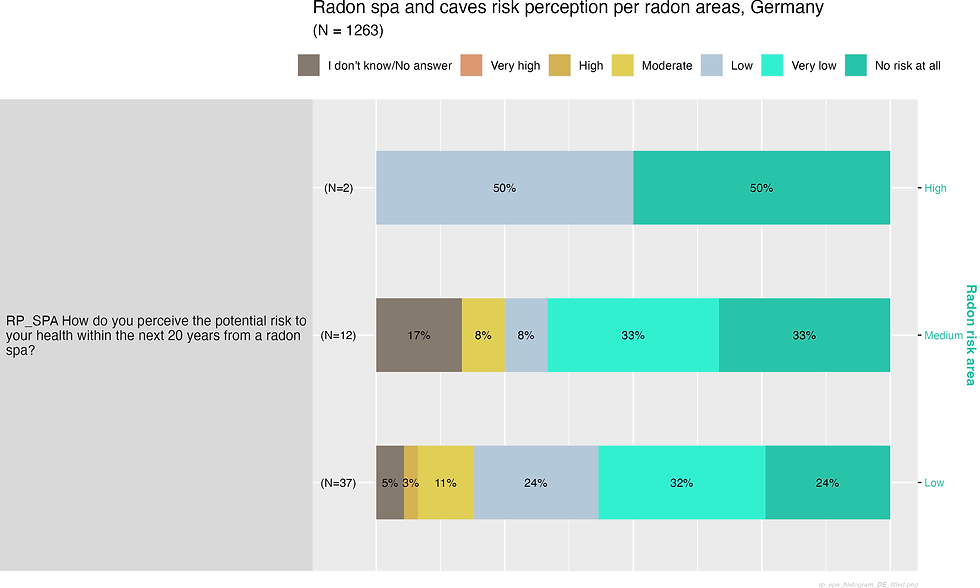
Confidence in authorities for risk management
To what extent do Germans have confidence in their authorities' ability to manage risks?

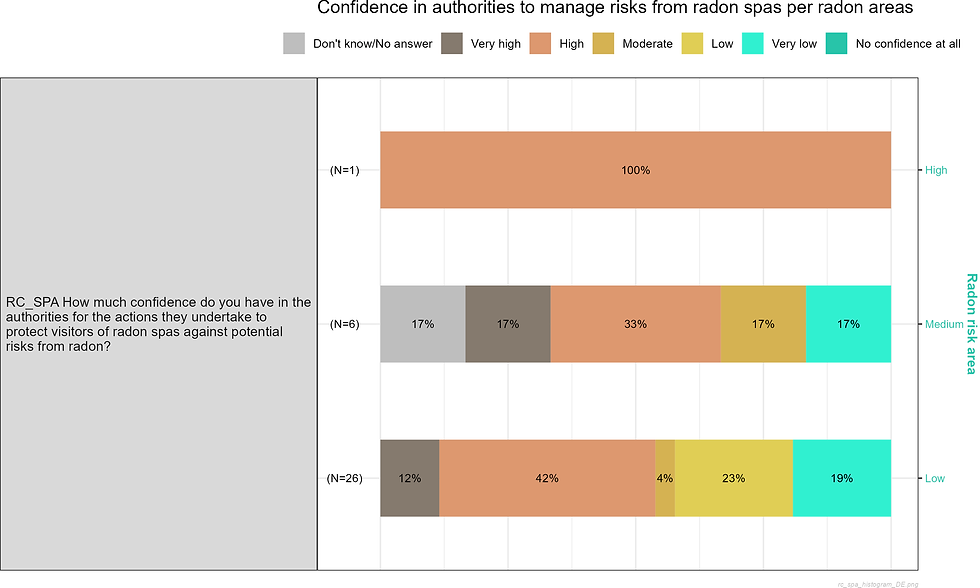
Knowing radon stakeholders
Which stakeholders related to radon are known to Germans?

Truthfulness of radon stakeholders
Who in Germany is recognized as a trustworthy source of information about radon risks?


Which stakeholders involved in radon mitigation in Germany are recognized as technically competent?
Competence of radon stakeholders

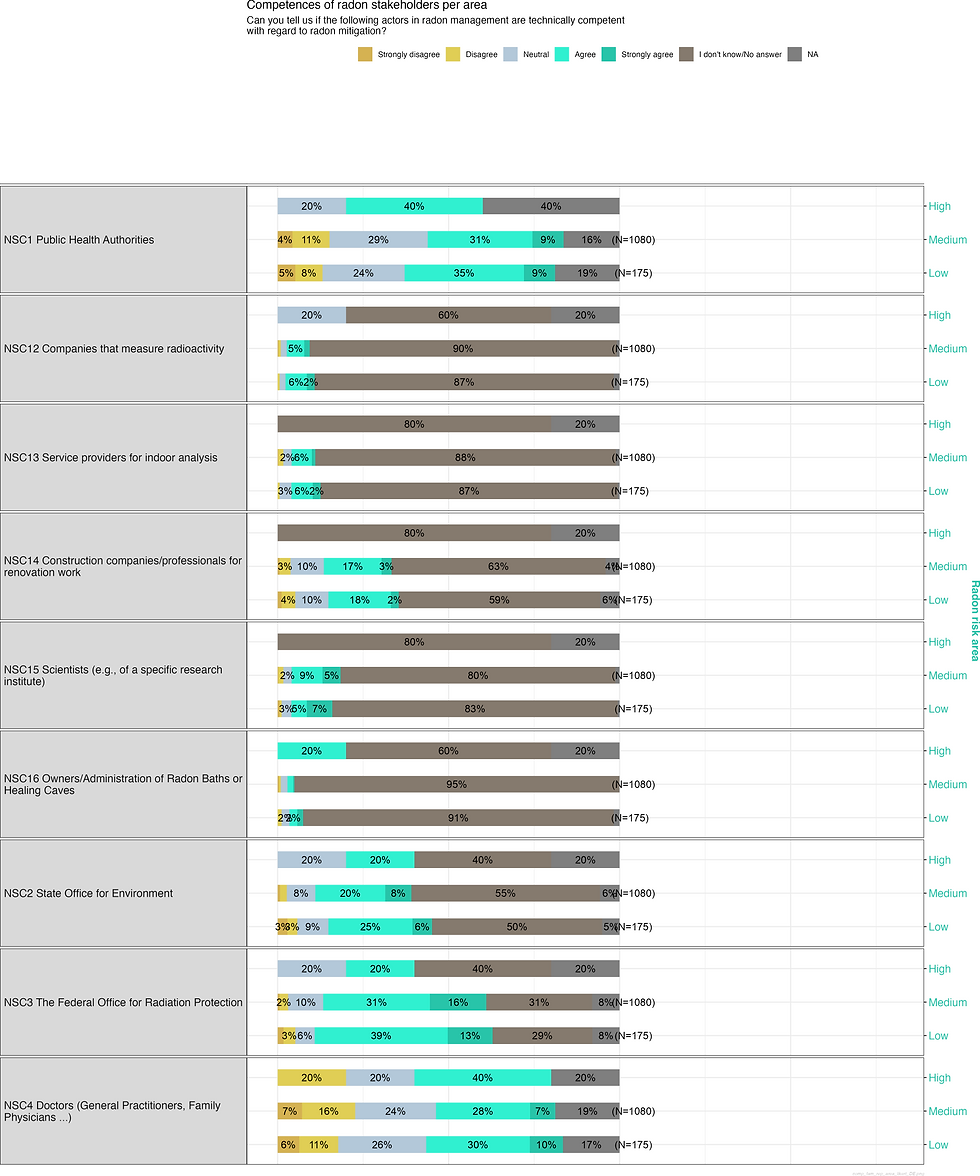

Severity
What are people's beliefs regarding the seriousness of negative consequences due to radon?
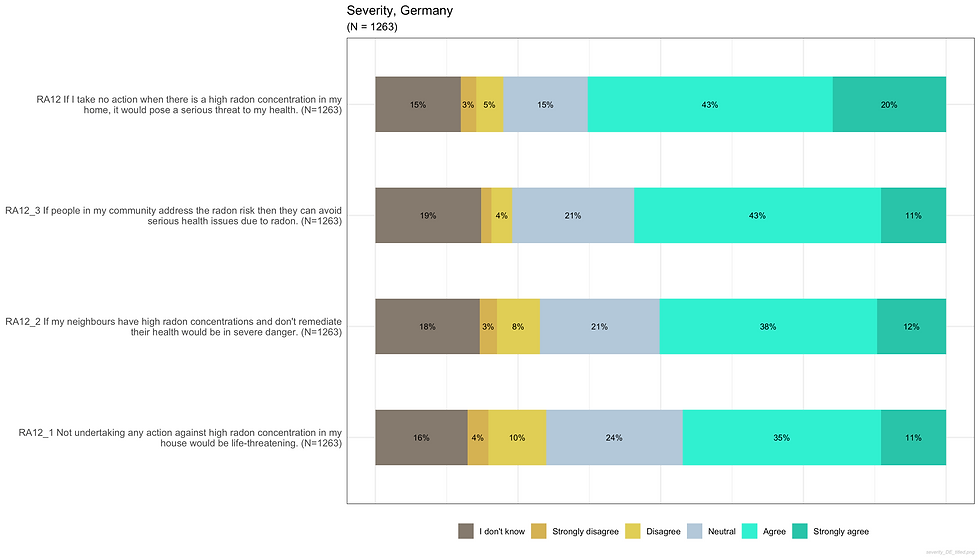

Susceptibility
Do people in Germany believe that radon increases the likelihood of health consequences?

Do individuals believe dwelling remediation is effective in reducing radon concentration?
Response efficacy: remediation

Self-efficacy
Do residents in Germany have confidence in their own ability to conduct radon testing and mitigation effectively?

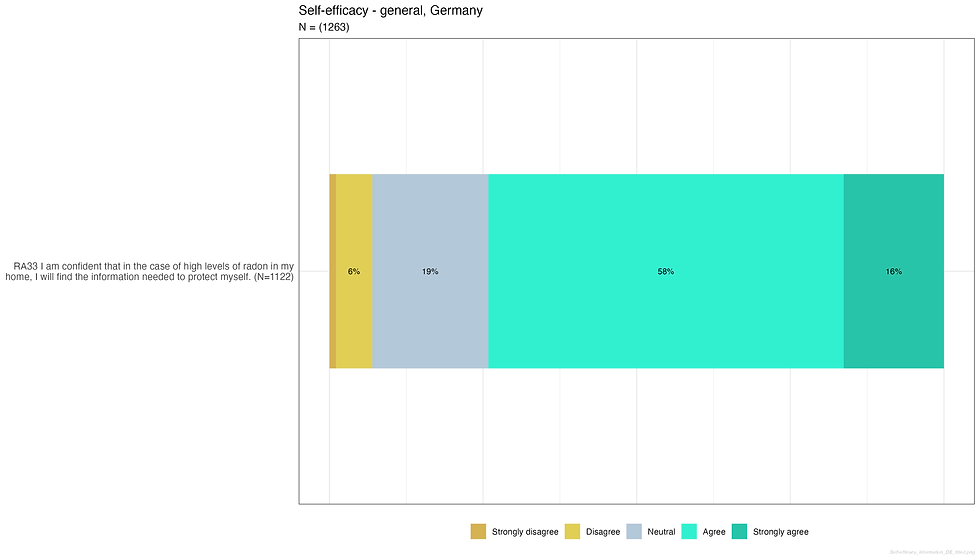

Perceived behavioural control: financial and other burden and ease
Is radon testing and mitigation perceived as a financial or other burden?



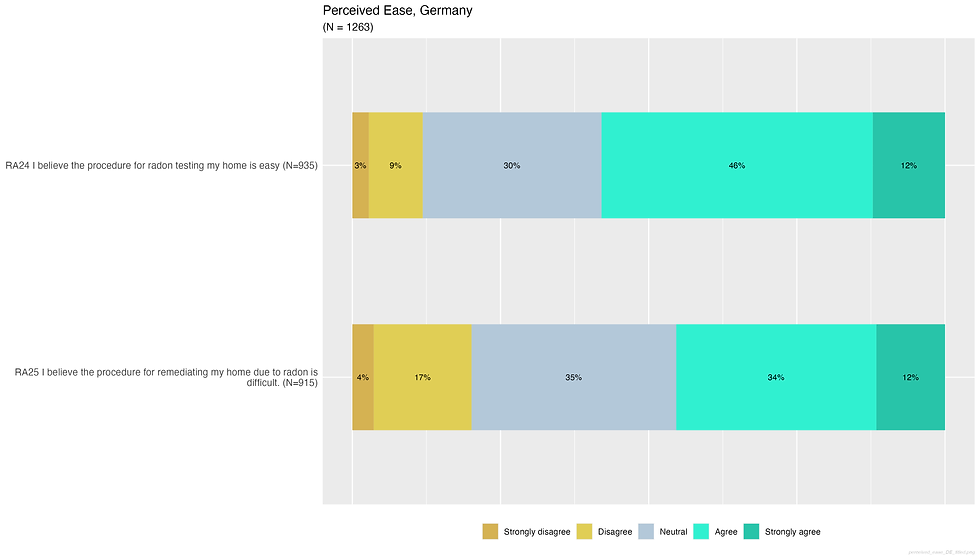
How strongly do Germans feel attached to their homes?
Personal attachment

Radon Spa
To what extent do Germans agree or disagree with statements about radon spas?

Note: For more information on attitudes towards radon spas, please see the 'Intercomparison of Countries' tab.
Social influence
What are the attitudes of respondents regarding social influence?

Moral norms
To what extent do Germans believe it is their moral duty to protect themselves and others from radon exposure?

Descriptive norms
Is radon testing and mitigation a common practice within social groups?
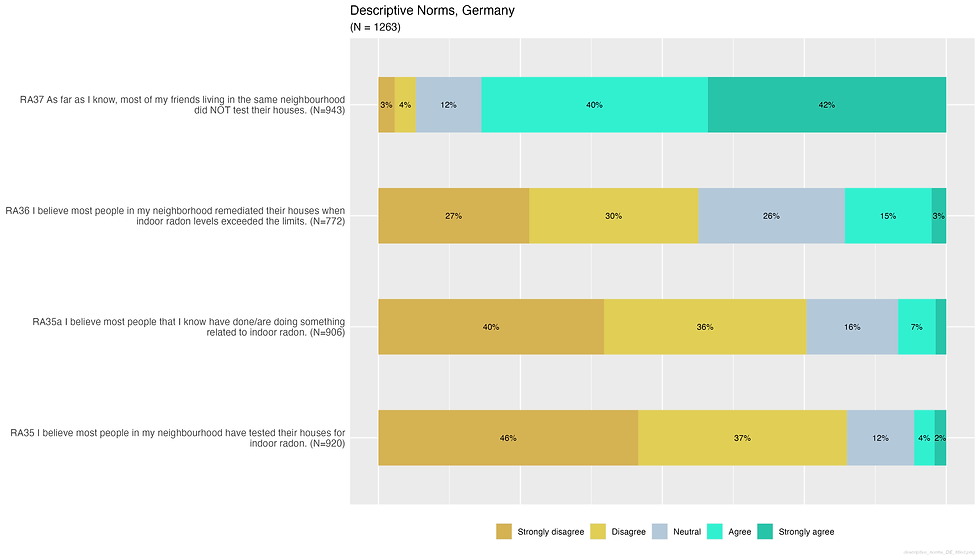
Economic impact of radon on a property value
Does a radon problem in a building negatively impact its financial value?

Subjective norms
Do family members and friends of resopondents care about radon-related issues?
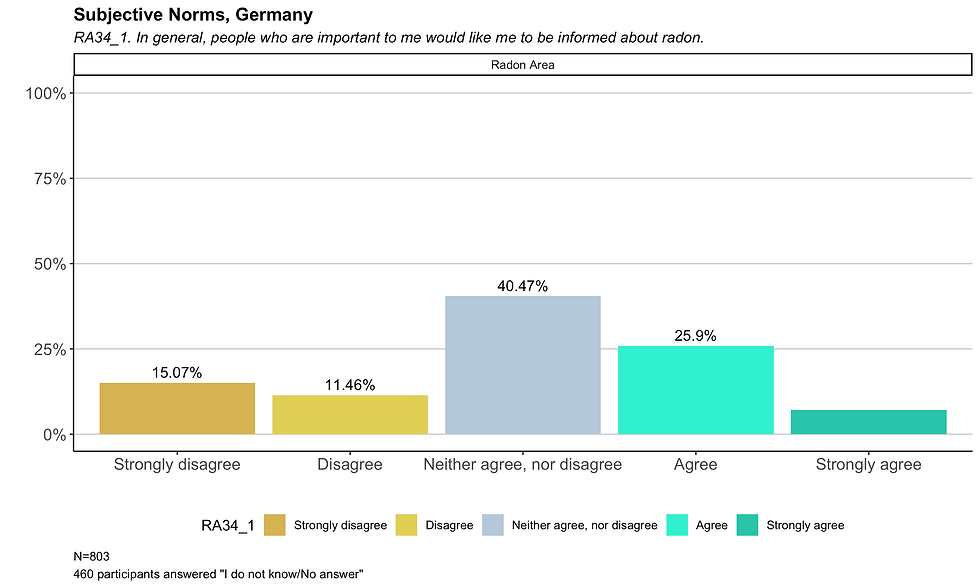


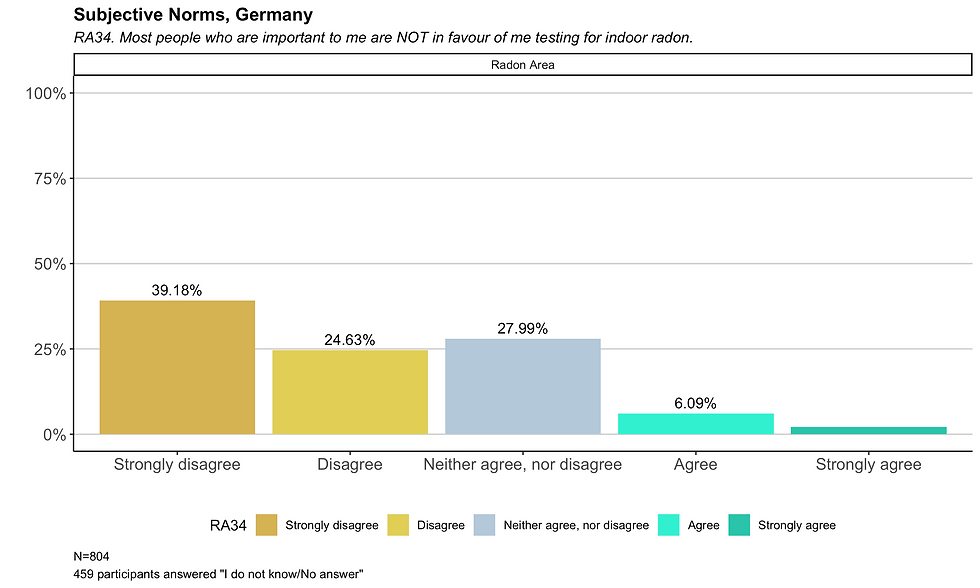
Health effect perception
Do individuals have acquaintances who may have experienced health issues as a result of radon exposure?

Stigma
Is there a risk of stigma associated with radon in dwellings?

Information processing
How do people process information about radon?
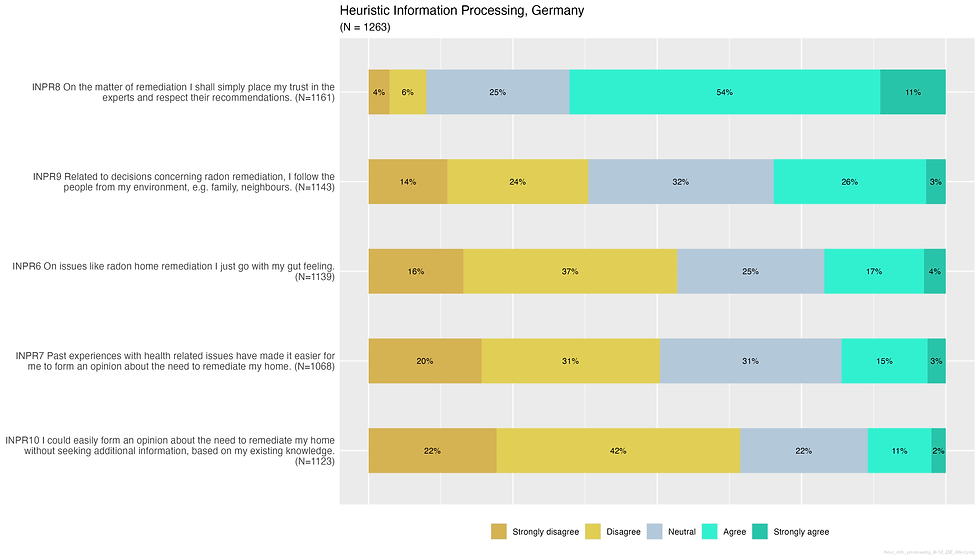


Information comprehensiveness
Is there enough information readily accessible?
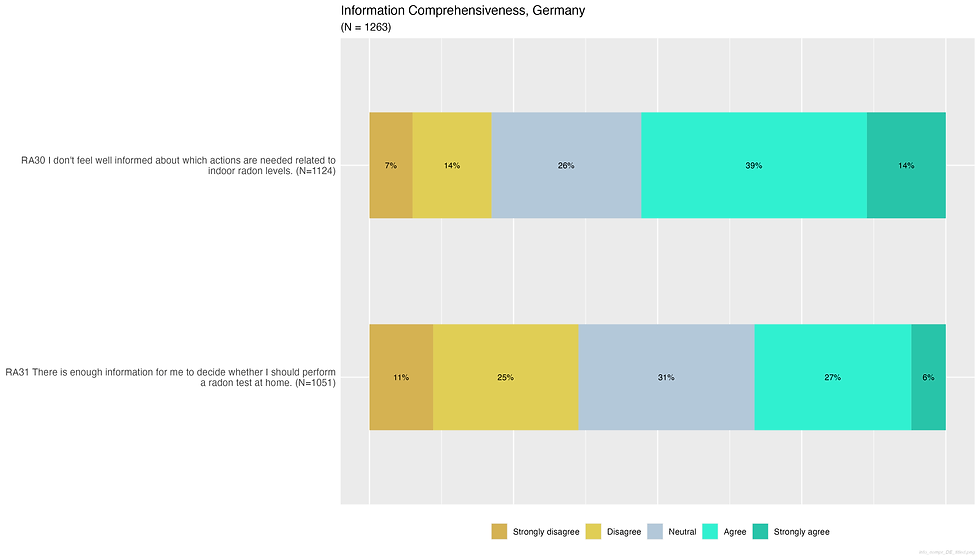
Information uncertainty
Is there too much uncertainty to make informed decisions?

Affective response to information
Does information related to radon elicit negative emotions?
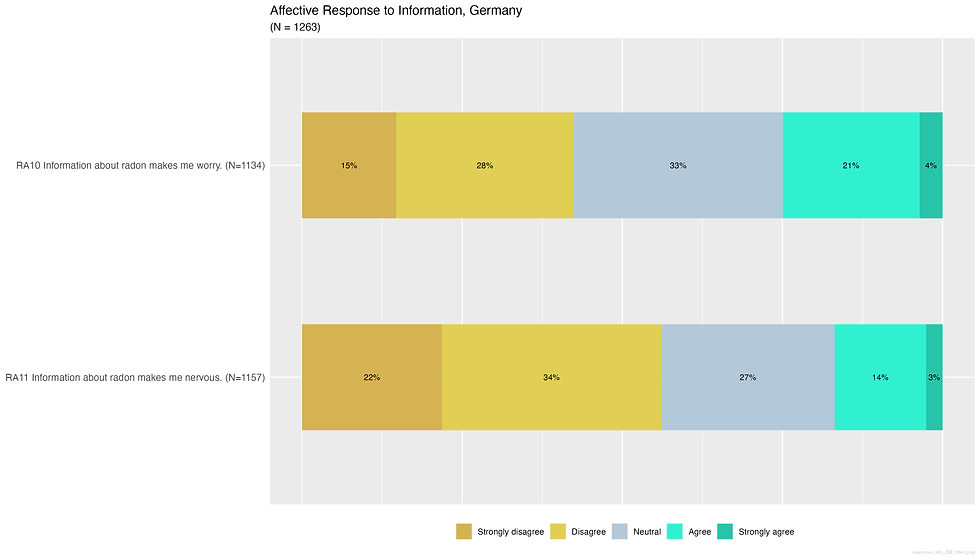
Preference for post-survey radon related information
Which communication channels are recommended for radon-related communication?

Trustworthiness of radon stakeholders
Who in Germany is recognized as a trustworthy source of information about radon risks?

Factors Influencing Behavioural Intention
Radon awareness

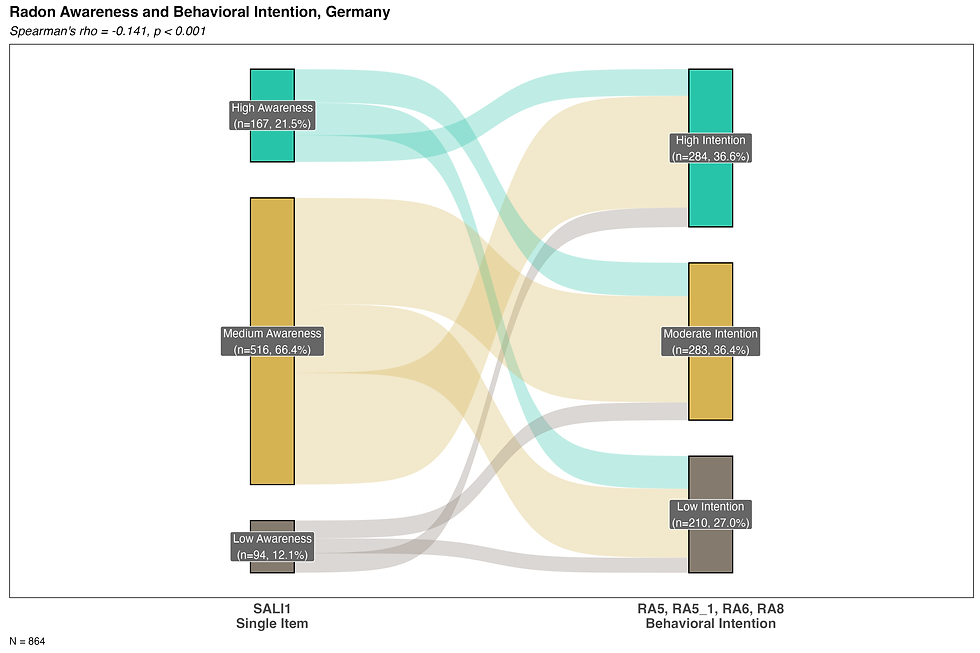
Personal attachment

Risk perception


Confidence in authorities for risk management

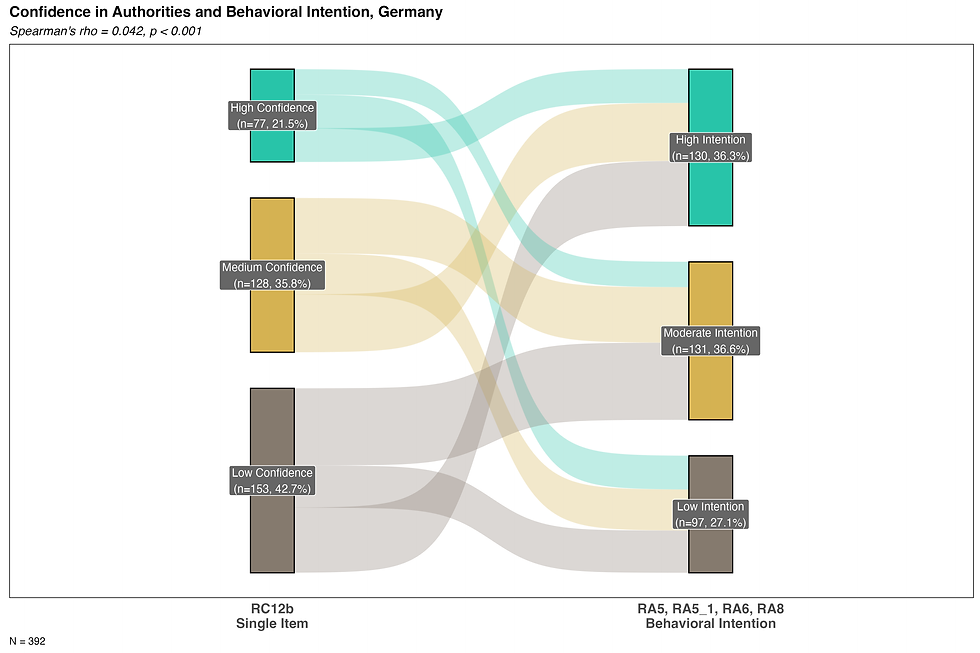
Severity
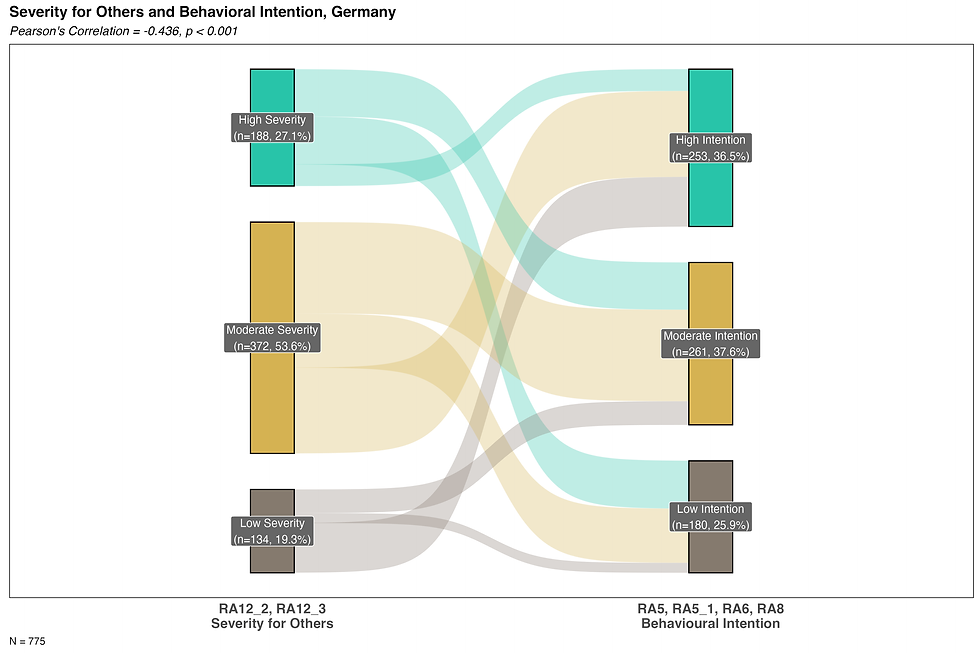

Susceptibility
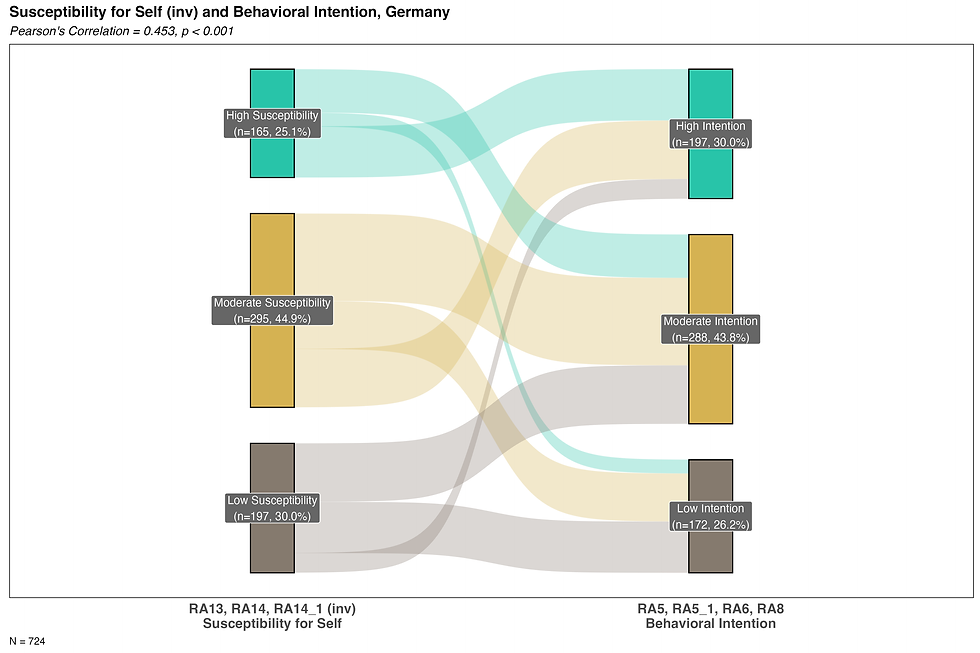

Response efficacy: remediation
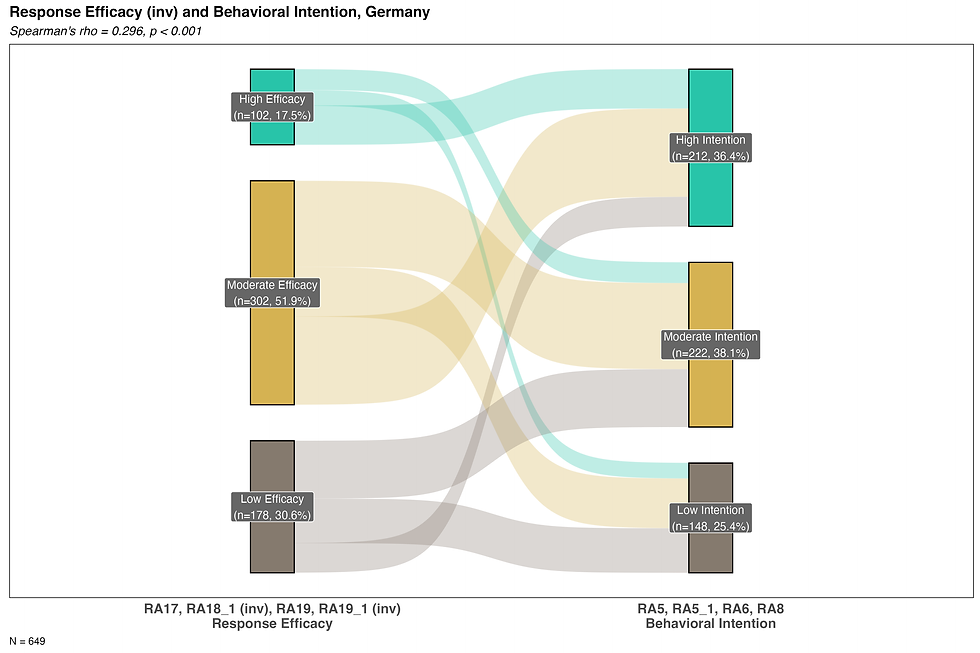
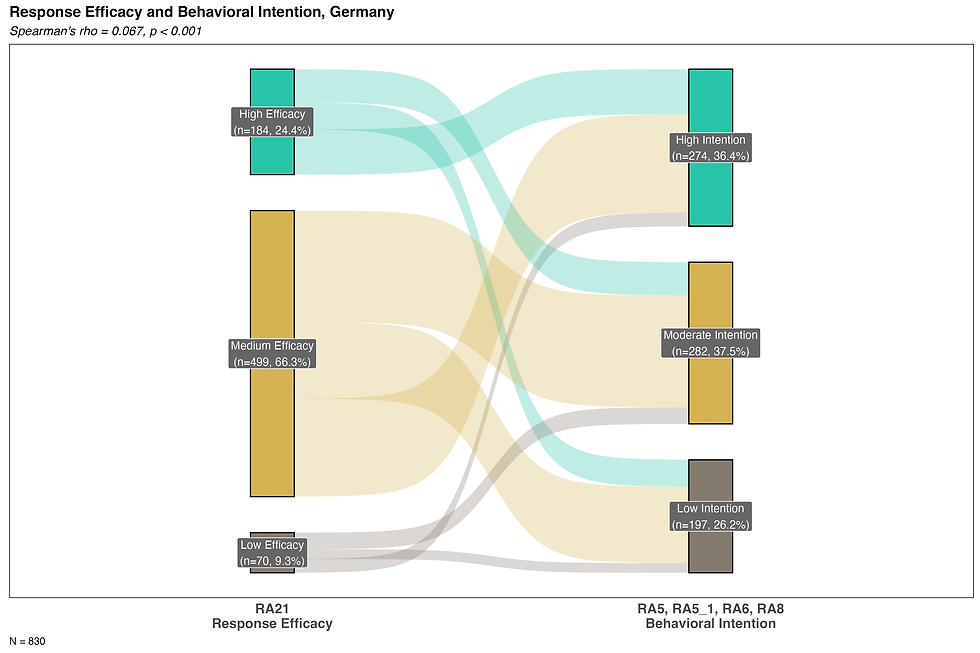
Self efficacy

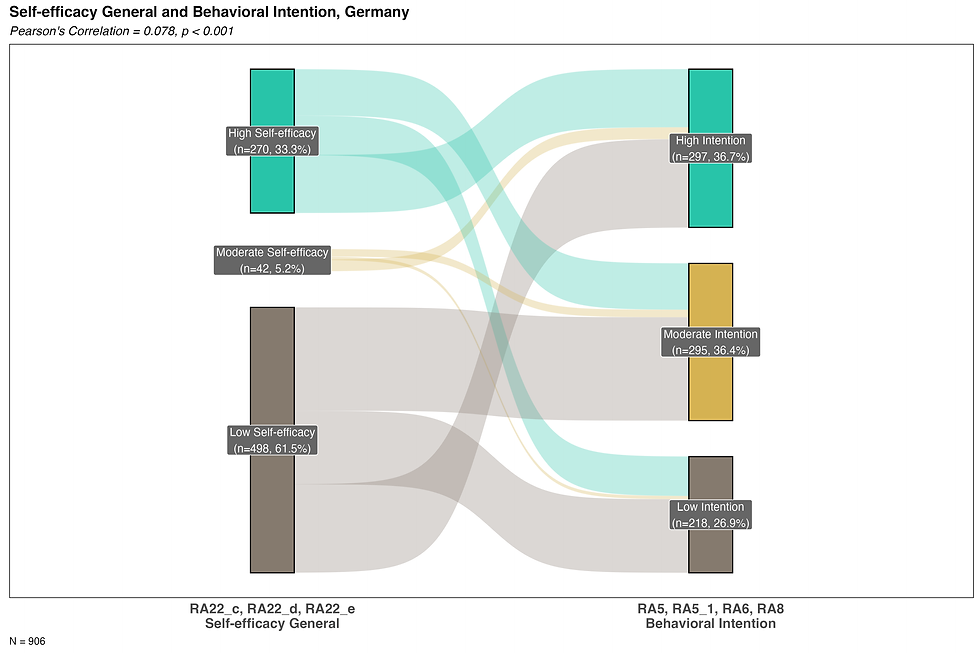

Perceived behavioural control: financial and other burden and ease
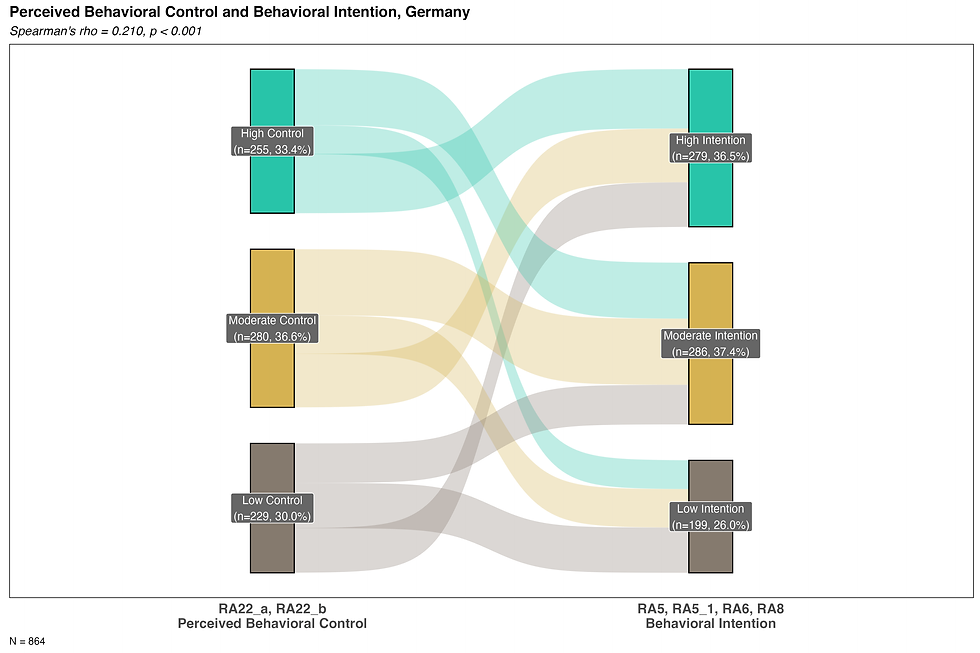

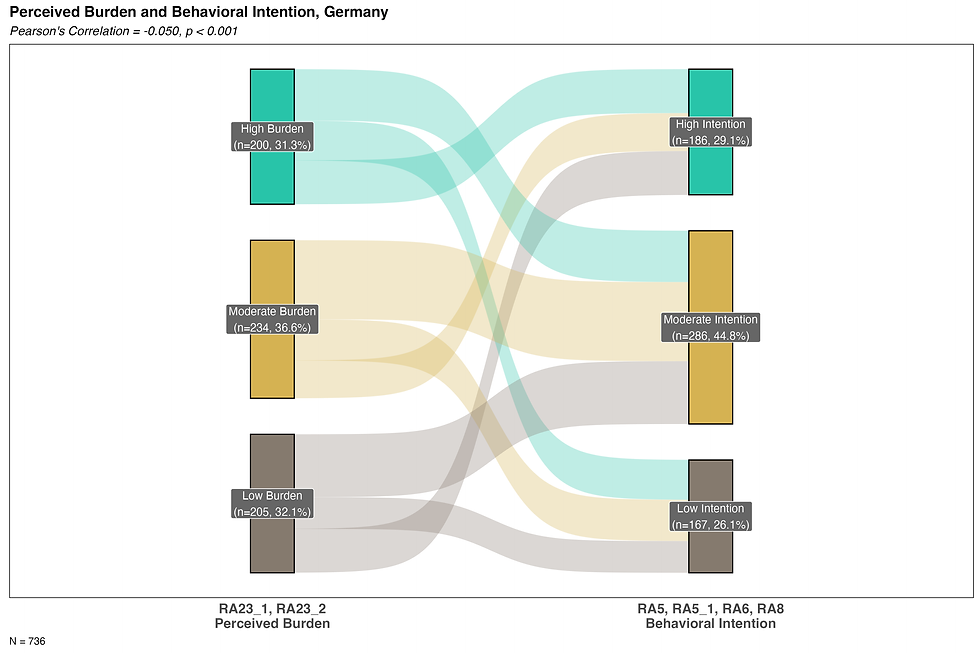
Perceived cost



Aesthetic impact of remediation works on a dwelling
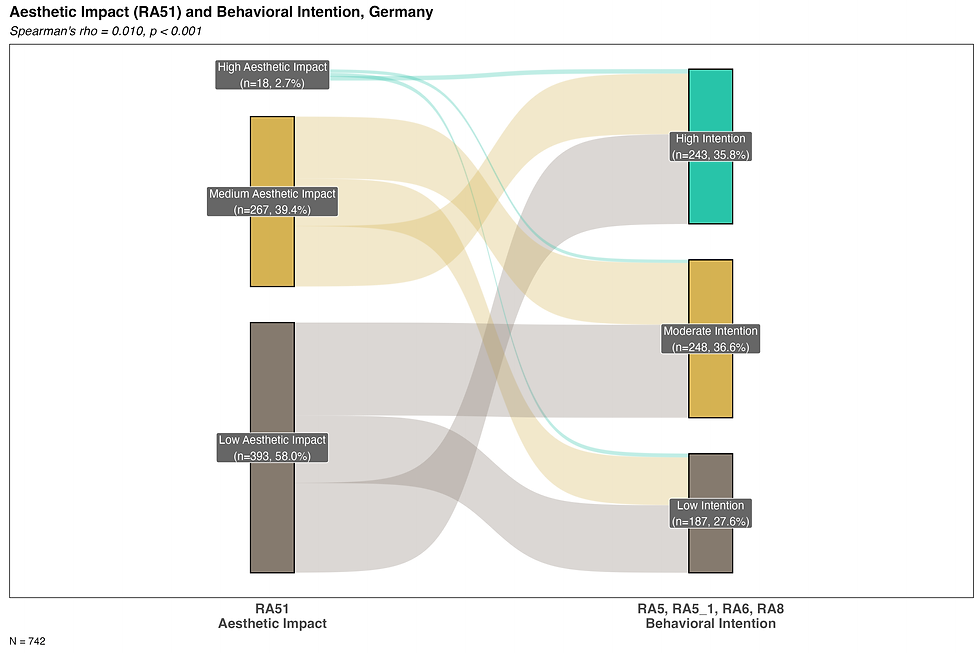
Economic impact of radon on a property value

Subjective norms

Descriptive norms
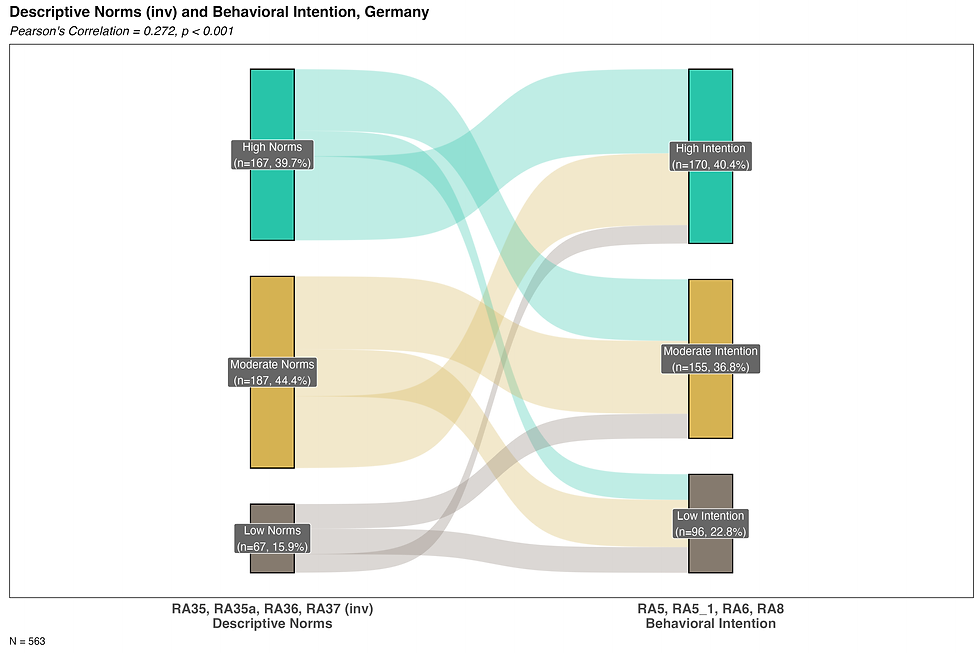
Moral norms

Moral values
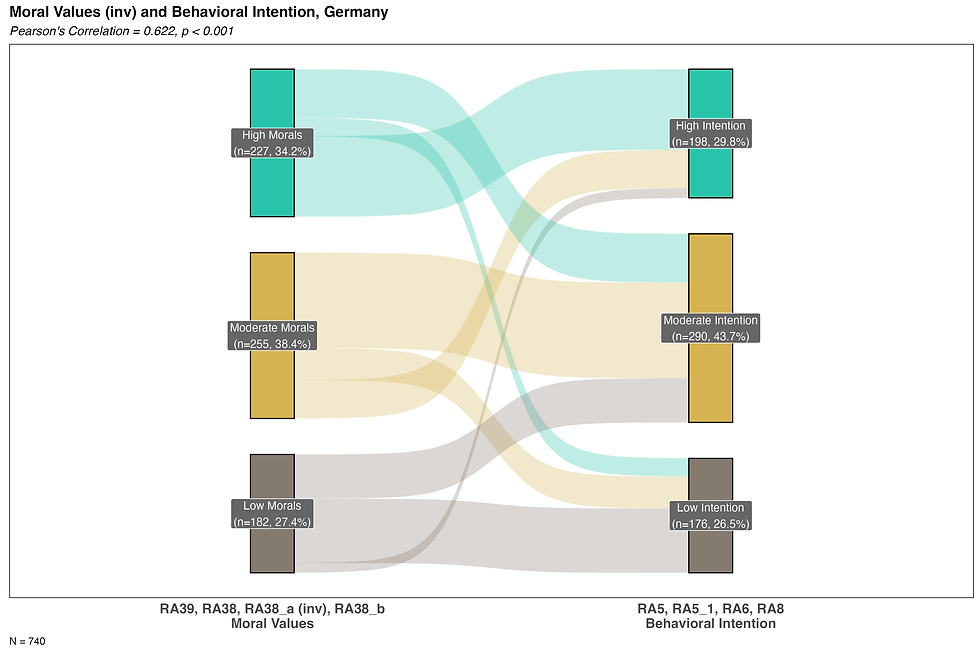
Social influence

Health effect perception

Stigma
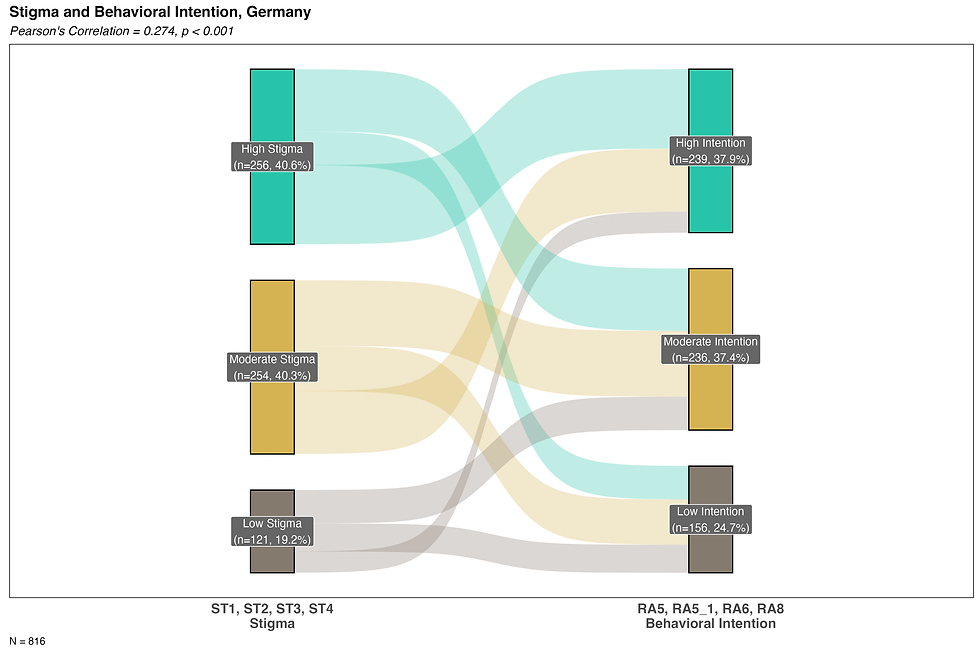
Information processing
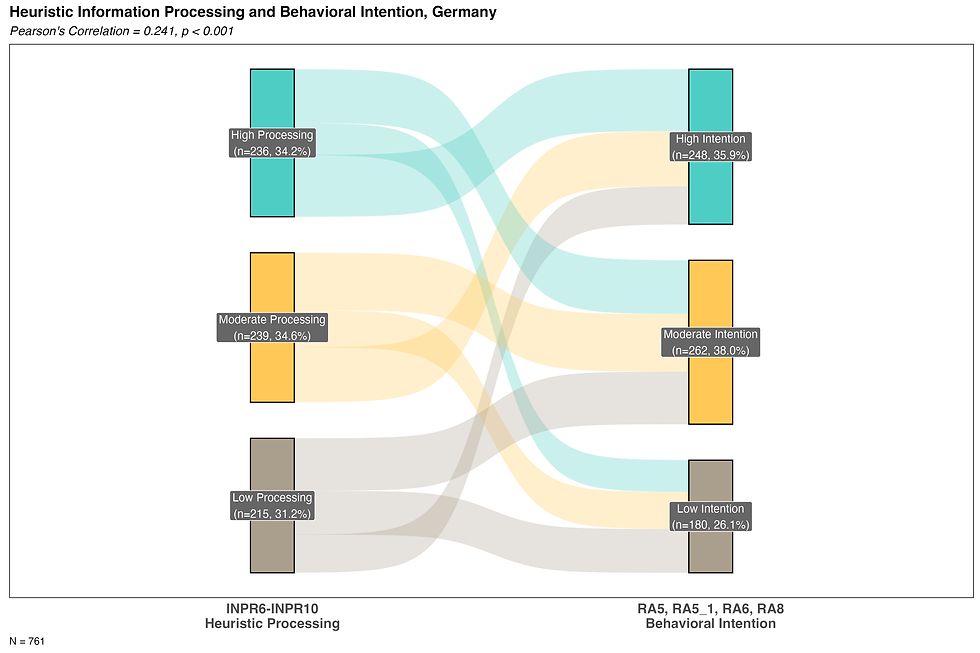

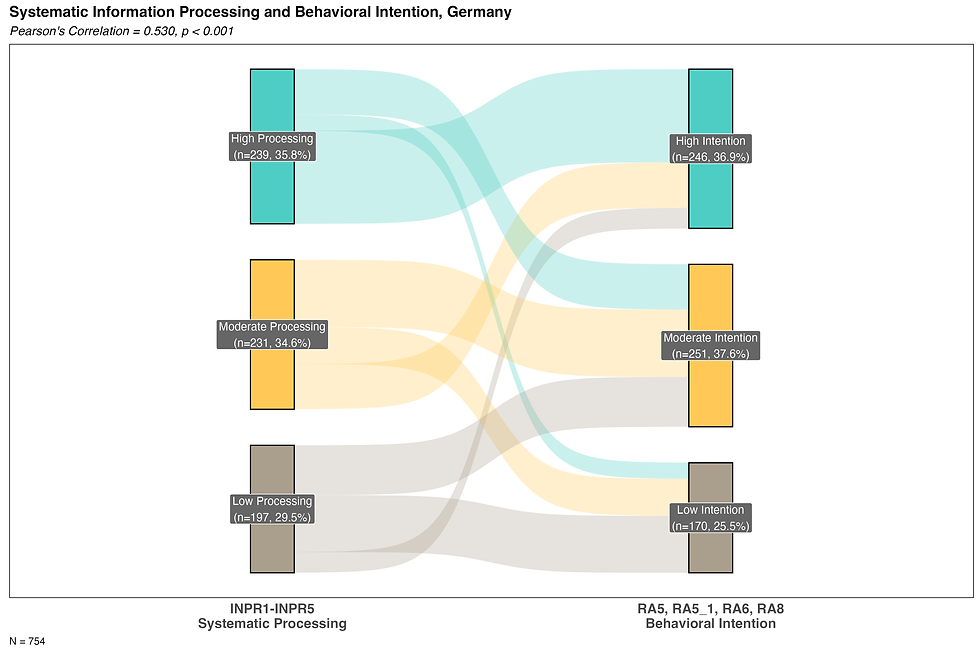
Information comprehensiveness
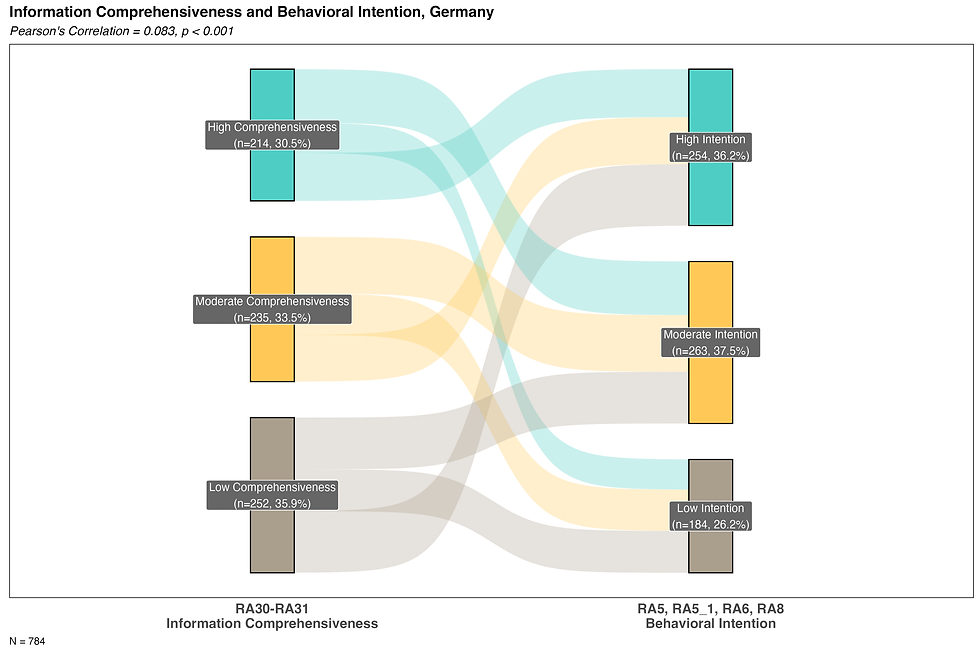
Information uncertainty

Affective response to information

Anticipated emotion

Relationship Between Radon Awareness and Behavioural Intention to Act on Radon Risk

